Unrealized Gains Supreme Court Case Could Change Wealth Taxes
Does a one-time mandatory tax on unrealized foreign gains violate the Constitution? The U.S. Supreme Court decides in a landmark tax case.

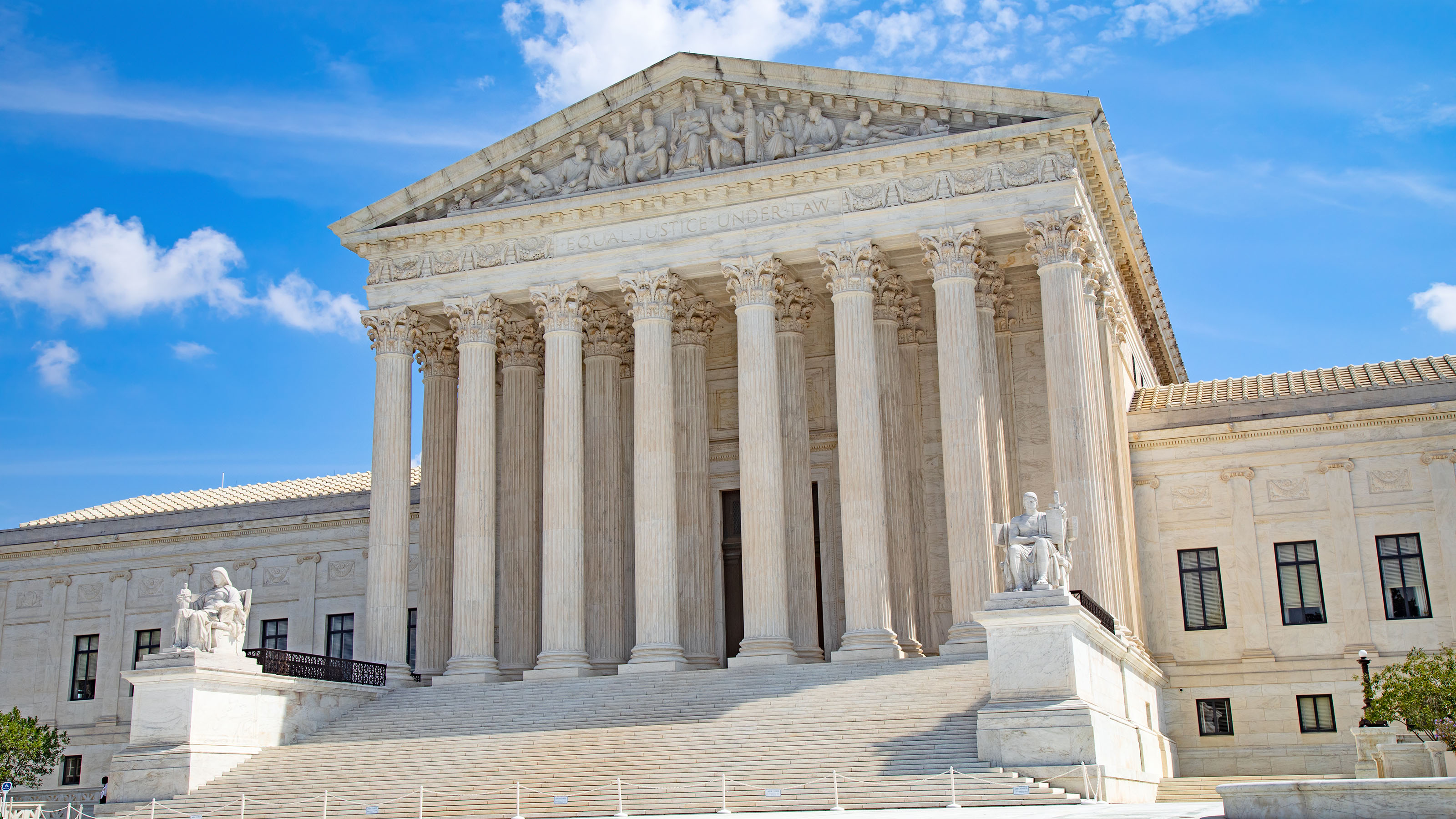
Profit and prosper with the best of Kiplinger's advice on investing, taxes, retirement, personal finance and much more. Delivered daily. Enter your email in the box and click Sign Me Up.
You are now subscribed
Your newsletter sign-up was successful
Want to add more newsletters?

Delivered daily
Kiplinger Today
Profit and prosper with the best of Kiplinger's advice on investing, taxes, retirement, personal finance and much more delivered daily. Smart money moves start here.

Sent five days a week
Kiplinger A Step Ahead
Get practical help to make better financial decisions in your everyday life, from spending to savings on top deals.

Delivered daily
Kiplinger Closing Bell
Get today's biggest financial and investing headlines delivered to your inbox every day the U.S. stock market is open.

Sent twice a week
Kiplinger Adviser Intel
Financial pros across the country share best practices and fresh tactics to preserve and grow your wealth.

Delivered weekly
Kiplinger Tax Tips
Trim your federal and state tax bills with practical tax-planning and tax-cutting strategies.

Sent twice a week
Kiplinger Retirement Tips
Your twice-a-week guide to planning and enjoying a financially secure and richly rewarding retirement

Sent bimonthly.
Kiplinger Adviser Angle
Insights for advisers, wealth managers and other financial professionals.

Sent twice a week
Kiplinger Investing Weekly
Your twice-a-week roundup of promising stocks, funds, companies and industries you should consider, ones you should avoid, and why.

Sent weekly for six weeks
Kiplinger Invest for Retirement
Your step-by-step six-part series on how to invest for retirement, from devising a successful strategy to exactly which investments to choose.
Taxing unrealized gains is at the core of a case that the U.S. Supreme Court is considering that could change how wealth is taxed in the U.S. The plaintiffs in Moore v. United States argue that a mandatory repatriation tax introduced by the 2017 Tax Cuts and Jobs Act (TCJA) is unconstitutional.
UPDATE: The U.S. Supreme Court has upheld the mandatory repatriation tax (MRT) disputed in this case. For more information, take a look at our June 20 article: Unrealized Gains Tax Survives Supreme Court.
- The one-time tax is levied on U.S. taxpayers with a specified amount of ownership in certain foreign corporations.
- The Moores didn’t receive dividends or “income” from their ownership stake in a foreign company, so they assert that only realized income can be taxed under the 16th Amendment to the U.S. Constitution.
According to lead attorney Andrew Grossman, who represents the plaintiffs, Charles and Kathleen Moore, “The Constitution does not allow Congress to point at any pot of money and call it ‘income’ and then income-tax it.” However, the Ninth Circuit Court of Appeals rejected that argument in the Moores’ case, finding that “realization of income is not a constitutional requirement” for income tax.
From just $107.88 $24.99 for Kiplinger Personal Finance
Become a smarter, better informed investor. Subscribe from just $107.88 $24.99, plus get up to 4 Special Issues

Sign up for Kiplinger’s Free Newsletters
Profit and prosper with the best of expert advice on investing, taxes, retirement, personal finance and more - straight to your e-mail.
Profit and prosper with the best of expert advice - straight to your e-mail.
Note: The Supreme Court heard the Moores’ case, brought by regulatory reform organization the Competitive Enterprise Institute and national law firm Baker Hostetler, last December.
Related: Will SCOTUS Strike Down Wealth Taxes?
- Outside groups, including public policy research organization the Cato Institute and the U.S. Chamber of Commerce business organization, submitted briefs asking the Court to take up the case in support of the Moores’ petition.
- Since then, more than 50 amicus briefs have been submitted in the case, some supporting the Moores' contention that the tax on unrealized gains should be struck down. This includes a brief from West Virginia and 16 other states, arguing that taxing unrealized gains harms state economies.
- Supreme Court Justice Samuel Alito was twice interviewed in the past by an attorney now involved in the Moore case. Alito issued a statement saying "there is no valid reason" to recuse himself from the case.
The Supreme Court’s decision to consider the constitutionality of taxes on unrealized gains galvanized longstanding debate over Congress’ power to tax wealth. Depending on how the Court rules, it could have landmark ramifications for wealth taxes going forward.
Supreme Court case on taxing unrealized gains: The TCJA mandatory repatriation tax
The dispute in Moore v. United States is about the mandatory repatriation tax (MRT), a one-time transition tax under Section 965 of the Tax Code levied by the IRS on certain foreign holdings of U.S. taxpayers. (Unrealized gains are essentially “on paper” profits because the investment involved hasn’t been sold.)
The MRT, enacted in the TCJA, is supposed to prevent shareholders from obtaining windfalls. As the Ninth Circuit Court stated when it ruled in the case, the mandatory repatriation tax is designed to keep shareholders from “never having to pay taxes on their offshore earnings that have not yet been distributed.”
What happened in Moore v. United States?
- The Moores owned a stake in an agricultural equipment company in India. They held their stake for years and didn’t receive dividends or income from their investment.
- However, the Moores paid close to $15,000 in taxes on the earnings attributed to them as shareholders in the company due to the mandatory repatriation tax.
- The couple sued the federal government arguing that the MRT they paid was unconstitutional because, they say, income must be realized to be taxable under the 16th Amendment.
What does the 16th Amendment say? The 16th Amendment to the U.S. Constitution says, “The Congress shall have power to lay and collect taxes on incomes, from whatever source derived, without apportionment among the several States, and without regard to any census or enumeration.”
In simple terms, the 16th Amendment essentially grants Congress the power to impose a federal income tax.
Is an unrealized gains tax unconstitutional?
A federal district court and a federal court of appeals ruled against the Moores. But the Supreme Court heard the case to resolve questions surrounding Congress’ taxing power. The key sticking point is whether income must be realized to be taxable under the Constitution. Groups including the Cato Institute argue an income tax can be imposed only on realized income, and if that weren’t the rule, Congress’ power to tax would essentially be unlimited.
In its amicus brief, the U.S. Chamber of Commerce argued that “income” has a plain meaning and “realization has been the defining event that turns something from an asset holding value to income subject to federal tax under the Sixteenth Amendment.” The Chamber says allowing unrealized gains to be taxed would mean companies wouldn’t control their realization decisions.
Related: Who Benefits From the Supreme Court 'Home Equity Theft' Ruling?
“Businesses and their shareholders could be subject to taxes on anything that the government later deems ‘income’ — even increases in value that could later disappear as valuations or markets fluctuate,” the organization wrote to the Court.
On the other side, the federal courts that ruled against the Moores found that the mandatory repatriation tax accomplishes a “legitimate purpose through rational means.” Specifically, in its ruling, the Ninth Circuit Court of Appeals noted:
- "That courts have consistently upheld the constitutionality of taxes similar to the MRT notwithstanding any difficulty in defining income."
- "The realization of income does not determine the tax’s constitutionality."
- And "there is no constitutional ban on Congress disregarding the corporate form to facilitate taxation of shareholders’ income."
How will the Court’s eventual ruling in Moore v. United States impact various wealth tax proposals involving unrealized capital gains going forward? Stay tuned.
Related
Profit and prosper with the best of Kiplinger's advice on investing, taxes, retirement, personal finance and much more. Delivered daily. Enter your email in the box and click Sign Me Up.

Kelley R. Taylor is the senior tax editor at Kiplinger.com, where she breaks down federal and state tax rules and news to help readers navigate their finances with confidence. A corporate attorney and business journalist with more than 20 years of experience, Kelley has helped taxpayers make sense of shifting U.S. tax law and policy from the Affordable Care Act (ACA) and the Tax Cuts and Jobs Act (TCJA), to SECURE 2.0, the Inflation Reduction Act, and most recently, the 2025 “Big, Beautiful Bill.” She has covered issues ranging from partnerships, carried interest, compensation and benefits, and tax‑exempt organizations to RMDs, capital gains taxes, and energy tax credits. Her award‑winning work has been featured in numerous national and specialty publications.
-
 Nasdaq Leads a Rocky Risk-On Rally: Stock Market Today
Nasdaq Leads a Rocky Risk-On Rally: Stock Market TodayAnother worrying bout of late-session weakness couldn't take down the main equity indexes on Wednesday.
-
 Quiz: Do You Know How to Avoid the "Medigap Trap?"
Quiz: Do You Know How to Avoid the "Medigap Trap?"Quiz Test your basic knowledge of the "Medigap Trap" in our quick quiz.
-
 5 Top Tax-Efficient Mutual Funds for Smarter Investing
5 Top Tax-Efficient Mutual Funds for Smarter InvestingMutual funds are many things, but "tax-friendly" usually isn't one of them. These are the exceptions.
-
 Trump Tariffs and the Supreme Court: Three Things to Know Now
Trump Tariffs and the Supreme Court: Three Things to Know NowTax Law The outcome of this legal battle about tariffs will hit your wallet in one way or another.
-
 The Supreme Court's TikTok Ruling: What 170 Million Users Need to Know
The Supreme Court's TikTok Ruling: What 170 Million Users Need to KnowSCOTUS As the deadline for a potential TikTok ban approaches, uncertainty looms over the app's future in the United States.
-
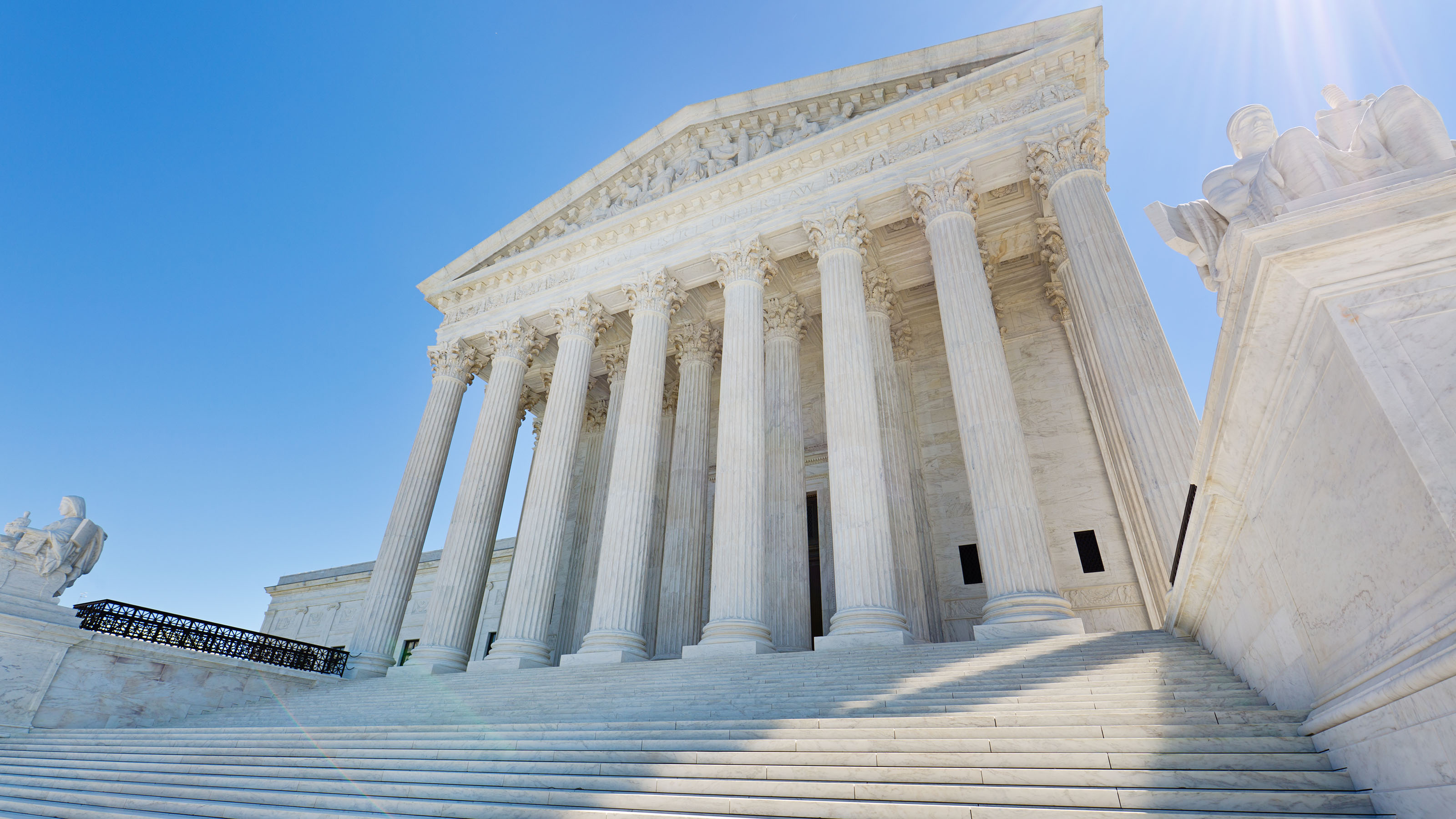 Supreme Court Strikes Down Chevron: What It Means for the IRS
Supreme Court Strikes Down Chevron: What It Means for the IRSTax Law A landmark decision from SCOTUS fundamentally alters the administrative law landscape and impacts federal agencies, including the IRS.
-
 Unrealized Gains Tax Survives U.S. Supreme Court
Unrealized Gains Tax Survives U.S. Supreme CourtWealth Taxes The Supreme Court’s ruling in Moore v. U.S. considers how wealth is taxed in the United States.
-
 Will a Supreme Court Case About Fishing Water Down the IRS?
Will a Supreme Court Case About Fishing Water Down the IRS?Supreme Court The U.S. Supreme Court just decided a case about Chevron deference that has implications far beyond the fishing industry.
-
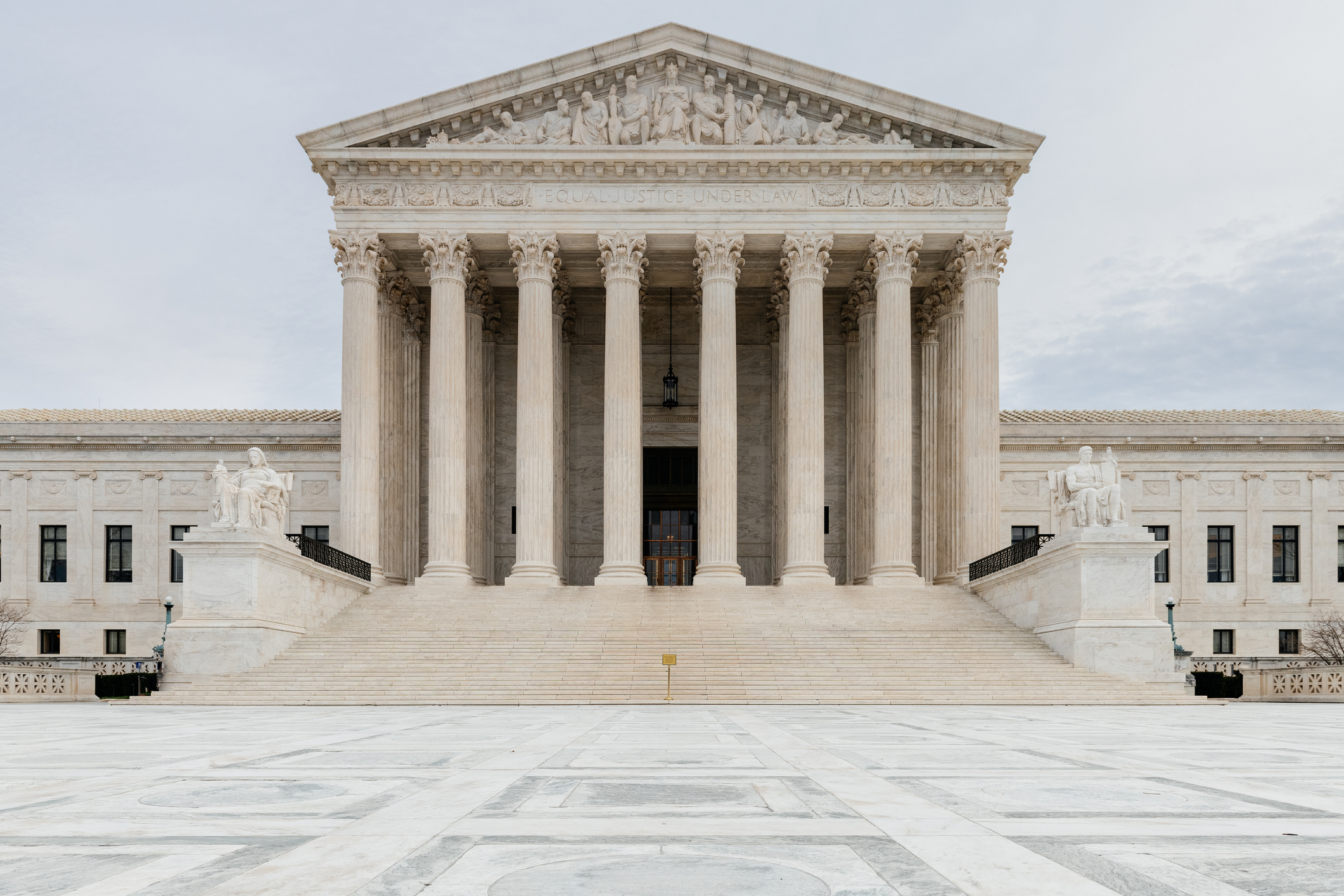 Will SCOTUS Uphold Wealth Taxes?
Will SCOTUS Uphold Wealth Taxes?Supreme Court The U.S. Supreme Court heard arguments in a case that some say could upend the U.S. tax code.
-
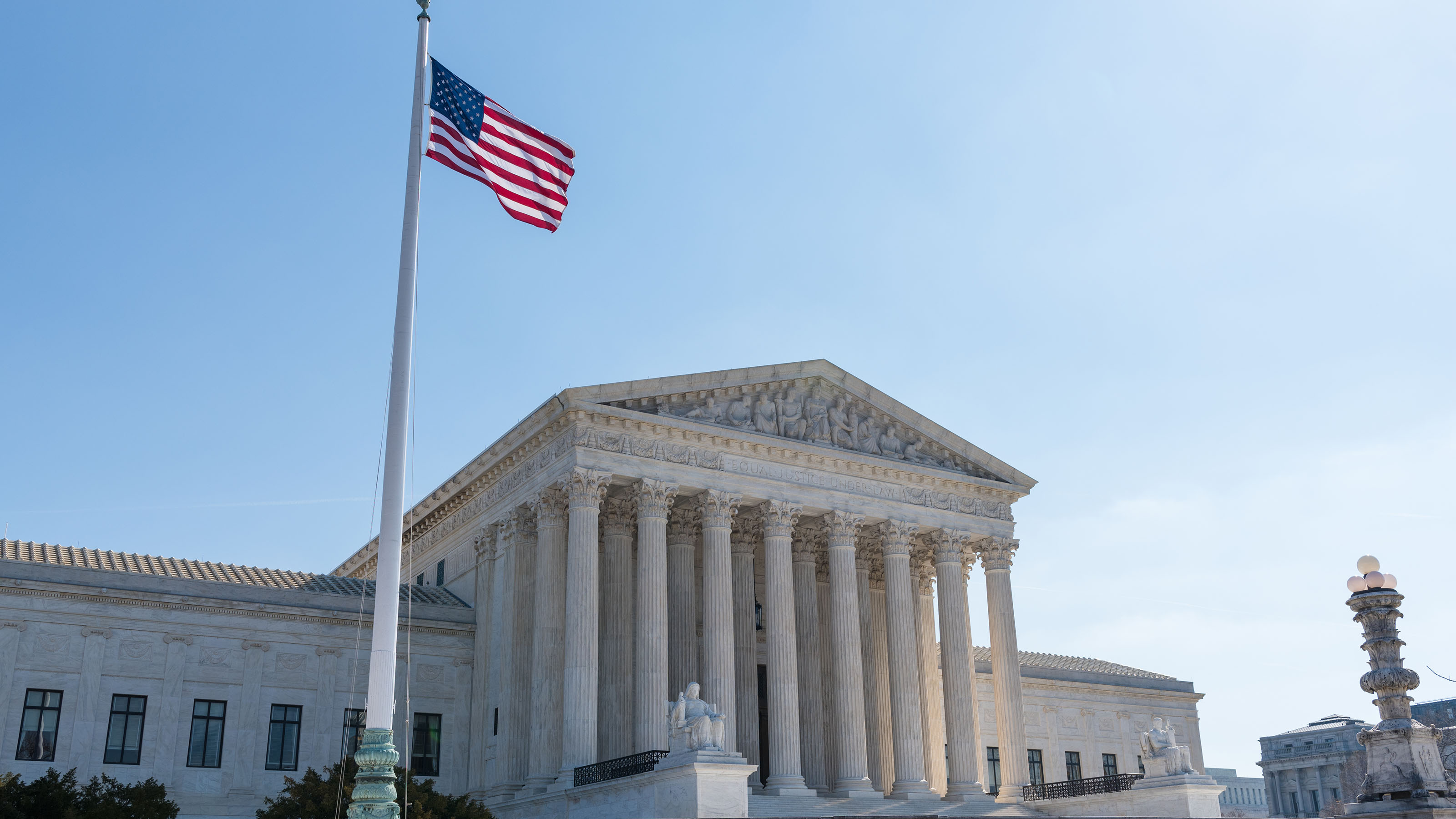 Two Supreme Court Cases Could Change the Tax Landscape: Kiplinger Tax Letter
Two Supreme Court Cases Could Change the Tax Landscape: Kiplinger Tax LetterKiplinger Tax Letter The Supreme Court’s new term started October 2. There are some interesting cases on its docket. Two could majorly change the tax landscape.
-
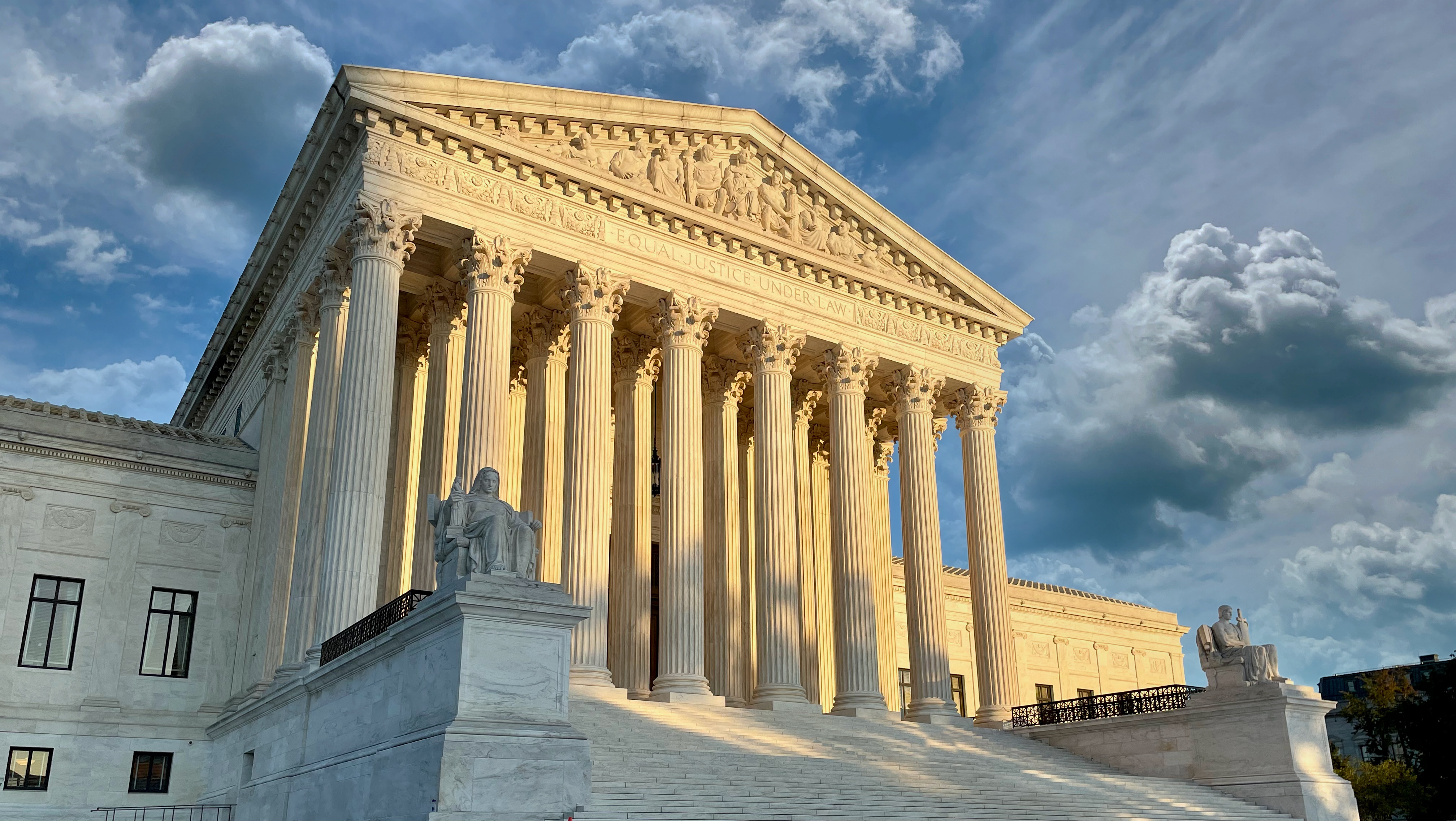 Social Media, Guns, Taxes, Abortion: New Supreme Court Cases You Need to Know
Social Media, Guns, Taxes, Abortion: New Supreme Court Cases You Need to KnowSupreme Court The U.S. Supreme Court will hear several cases this fall that could significantly impact your rights and wealth. Here are a few of them to watch.